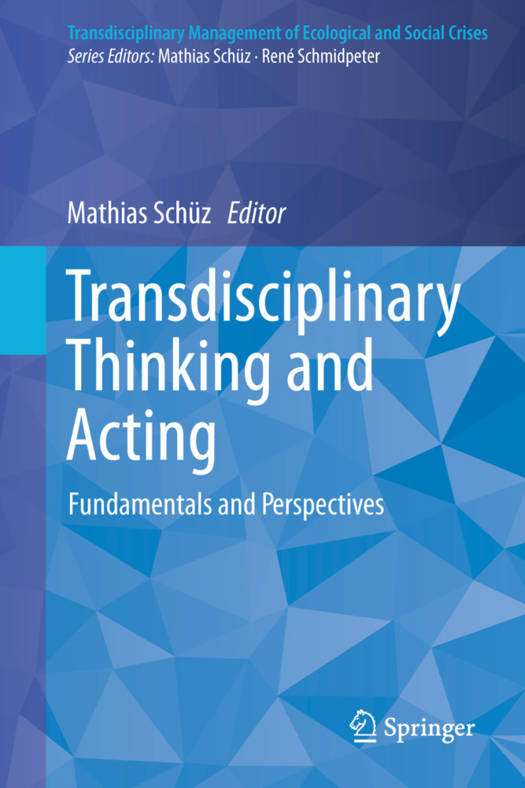
- Afhalen na 1 uur in een winkel met voorraad
- Gratis thuislevering in België vanaf € 30
- Ruim aanbod met 7 miljoen producten
- Afhalen na 1 uur in een winkel met voorraad
- Gratis thuislevering in België vanaf € 30
- Ruim aanbod met 7 miljoen producten
Transdisciplinary Thinking and Acting
Fundamentals and Perspectives
Omschrijving
Complex problems can only be overcome with complex solutions. This dictum by Albert Einstein also applies to current world problems such as climate change, species extinction, the littering of our planet, and the growing gap between rich and poor. They overwhelm individual scientific disciplines. Therefore, they can only be solved through transdisciplinarity, i.e. beyond the individual disciplines in interaction with empirical knowledge of different provenance and philosophical reflection.
This first volume of the book series "Transdisciplinary Management of Social and Ecological Crises" explains how transdisciplinarity is to be understood in general, what approaches exist, and how they contribute to solving the various world problems.
In this context, the book addresses, among other things, the replacement of man's claim to dominion over nature, the overcoming of culturally determined boundaries in human communities, and integrative and agile management methods in business, politics, art, and society. It deals with a sustainable circular economy, new forms of politics in the interest of all instead of a few, learning from artists, healthy and environmentally sound nutrition, and spiritual mindfulness in dealing with oneself and other ways of life.
Thus, the book is aimed at a broad audience from different disciplines interested in the perspective of and interaction with other disciplines to solve global problems.
Chapter "Methodology of Transdisciplinarity-Levels of Reality, Logic of the Included Middle and Complexity" is available open access under a Creative Commons Attribution 4.0 International License via link.springer.com.
Specificaties
Betrokkenen
- Uitgeverij:
Inhoud
- Aantal bladzijden:
- 237
- Taal:
- Engels
- Reeks:
Eigenschappen
- Productcode (EAN):
- 9783031706790
- Verschijningsdatum:
- 17/02/2025
- Uitvoering:
- Hardcover
- Formaat:
- Genaaid
- Afmetingen:
- 155 mm x 235 mm

Alleen bij Standaard Boekhandel
Beoordelingen
We publiceren alleen reviews die voldoen aan de voorwaarden voor reviews. Bekijk onze voorwaarden voor reviews.










